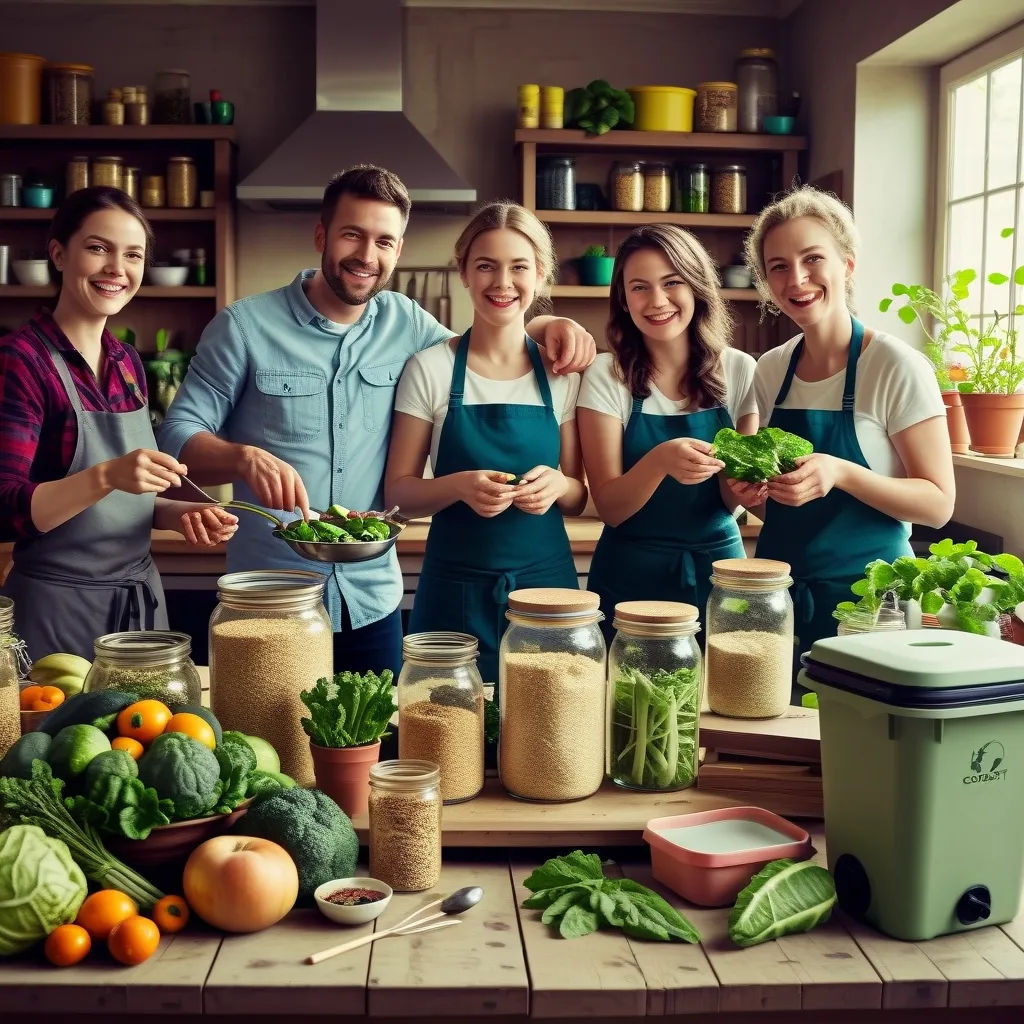Embracing a Zero-Waste Kitchen: A Guide to Sustainable Living
Environmental awareness has been catching on like wildfire. More and more folks are starting to see the importance of being eco-friendly. Owning a zero-waste kitchen is one way to step up your game and reduce that ecological footprint. It’s not just about cutting down on the trash. Nope, it’s a lifestyle change that involves being mindful, creative, and resourceful. Here’s a laid-back guide on transforming your kitchen into an eco-haven.
Meal Planning: The Game Changer
Think about it. How many times have you bought something on a whim, just to find it gone bad a week later? That’s where meal planning swoops in to save the day. By sketching out your meals for the week, you dodge the pitfall of impulse purchases and food waste.
First, decide what’s going on the menu. Then, rifle through your pantry and fridge to see what you already have. Make a list of what you actually need to buy. This way, you only stock up on the essentials and leave the waste behind. A win-win, right?
Smart Shopping: Less Packaging, More Bulk
When it’s time to hit the store, think big — bulk, that is. Loads of stores now have refill stations for stuff like grains, pasta, and spices. Bring your own reusable bags and containers. Not only does this cut down on packaging waste, but it also makes you feel like a zero-waste superhero.
Waste Not, Want Not
Every bit of your veggies, fruits, and herbs has potential. Instead of dumping those peels, cores, and stems, get creative. Broccoli stems? Perfect for a stir-fry. Citrus peels? Candied or zested, they’re stars. Veggie peels? Turn ‘em into a rich broth or crisp them up for a snack. Even stale bread can find new life as croutons or breadcrumbs.
Composting: Nature’s Recycler
Composting is the bomb when it comes to dealing with kitchen scraps. Plus, it enriches the soil in your garden or local green spaces. Get yourself a compost bin or set up a compost heap in your backyard. Your organic waste transforms into nutrient-packed compost, serving as a fantastic natural fertilizer for your plants.
Preservation Techniques: Prolonging Freshness
Preservation isn’t just for grandmas. Techniques like canning, pickling, fermenting, and drying help you cut down on waste and keep your goodies longer. When fruits and veggies are in season, think preservation. Whip up homemade jams, chutneys, or sauces. Pickle veggies for crunchy munchies or ferment cabbage into tangy sauerkraut. These little tricks extend the shelf life and keep the flavor and nutrition locked in.
Stay Mindful: Watch Those Portions
Cooking and serving just what you need is huge in a zero-waste kitchen. Be aware of your portion sizes and eating habits to avoid tossing leftovers. And when you eat out, beware of big portions. Smaller portions at a restaurant could seriously cut down on food waste.
Proper Storage: Keeping It Fresh
Storage is key to keeping your food fresh. The right temperature and airtight containers make all the difference. Mason jars are fantastic for fresh produce. And remember to label everything with dates, so you use the oldest stuff first.
Ditch the Single-Use
Single-use anything is a waste bag waiting to happen. Switch to reusable containers, bags, and utensils. Make room for them in your kitchen setup. Stock up on reusable produce bags and switch out the paper towels for something you can wash and reuse.
Design with Sustainability in Mind
If you’re planning a revamp or just tweaking your kitchen, think about sustainability. Good design helps you see what you have, reducing the chance of waste. Compost and recycling stations should be easy to access, making it simpler to follow through.
Community and Collaboration
Your path to a zero-waste kitchen can inspire others. Share what you know — tips, recipes, and resources — with friends and family. Join local Buy Nothing groups or meetups to swap surplus produce, kitchen tools, and more. Connecting with others can amplify your efforts and foster a sense of eco-conscious community.
The Perks of Zero-Waste
Going zero-waste offers loads of benefits. You save money by wasting less food and using every bit. Eating becomes healthier as you gravitate towards fresh, whole foods. If you’re running a restaurant, being eco-friendly can grab the attention of eco-conscious customers and boost your rep.
Baby Steps: Every Small Change Matters
Don’t stress about going zero-waste overnight. The trick is to start small. Whether you’re planning meals, using reusable containers, or composting, every little bit counts. Each step you take adds up to make a real impact. Gradually, these small changes bloom into a full-on sustainable lifestyle.
Embrace the zero-waste mindset and turn your kitchen into an eco-friendly space. It’s a journey that blends creativity, resourcefulness, and mindfulness. The payoff is a cleaner, greener world, and a more fulfilling cooking experience. So, why wait? Dive into your zero-waste kitchen journey today and be part of the sustainability wave.






